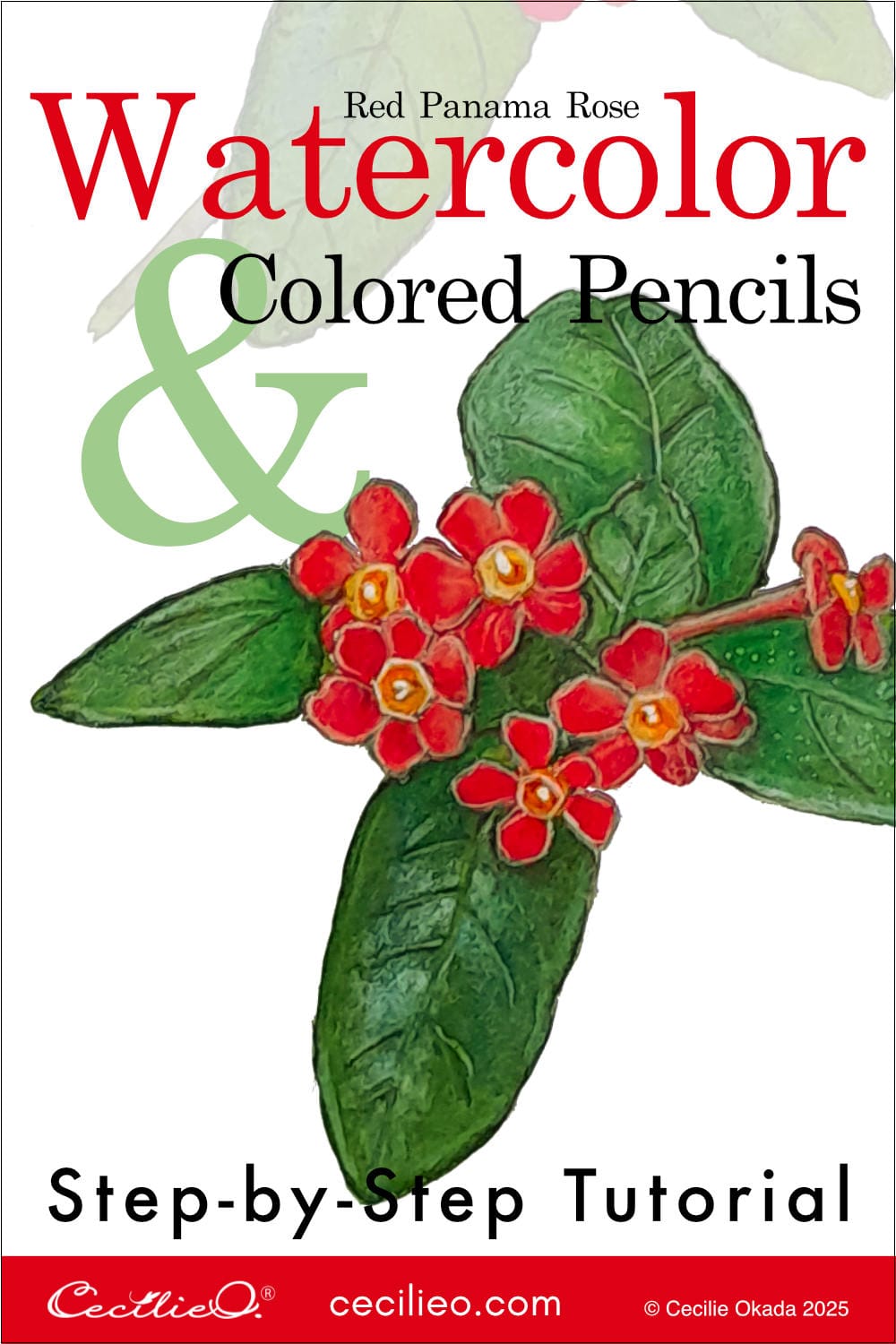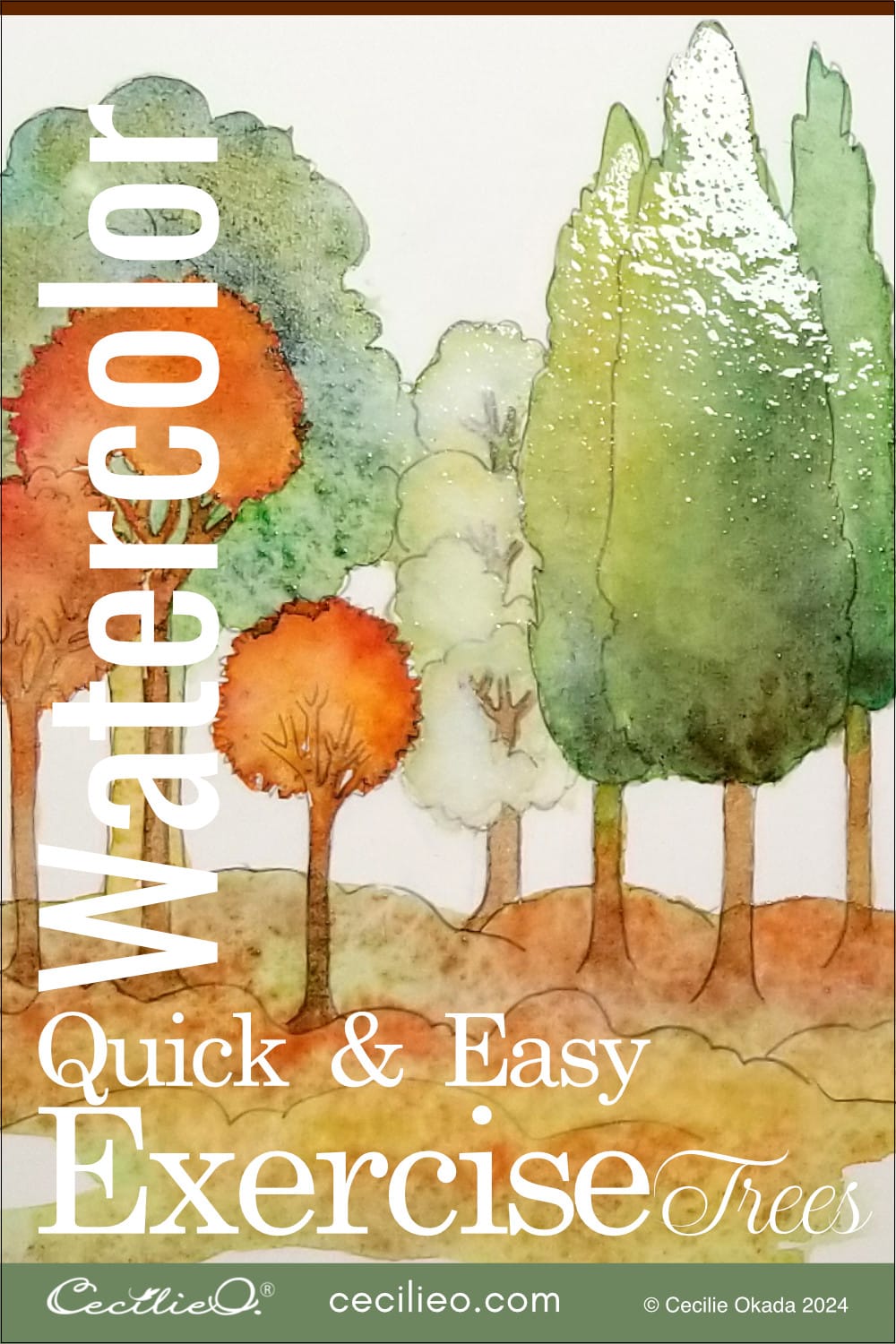
Estimated reading time: 5 minutes
Creamy yellow and sun-yellow is a beautiful color combination. Primroses light up gardens with their bright and cheerful appearance. In this watercolor painting for beginners, I show you a simple process. Primrose flowers grow in clusters on single stalks. To avoid drawing many flowers, I have taken a somewhat decorative approach.

Primrose in medicine and mythology
You have probably heard about evening primrose oil. It shares the primrose name but is made from a variety unrelated to the garden primrose. The oil has a long list of health benefits that are scientifically proven. As a folk remedy, it was known as “King’s cure-all”.
A kind of wild primrose is called cowslip, and I love this yellow beauty. Cowslip is abundant in Norwegian summers. It was the favorite flower of the pagan Norse goddess Freya, who used the “lady’s keys” to fly into other realms. Today the flower is called Maria nøkleblom in Norwegian, meaning Mary’s flower keys. The virgin Mary has replaced Freya.
Step 1: Drawing a decorative primrose
The photograph we will use as a reference has nine flower heads. They spring out from a central stem in an umbrella-like fashion. My primrose drawing has only four flowers lined along the stalk. Swirls, instead of leaves, embellish the plant.

Try your hand at inventing a decorative primrose. Make sure to keep the basic structure of the flower heads. They have five heart-shaped petals and a small center. My book “How to Draw Flowers Step by Step. 46 easy flower designs” is filled with easy flower designs. It teaches you to draw flowers in simplified forms, some with ornamentation.
You can download many outlines as PDFs in the free One tree Art Club library. Each drawing goes with a tutorial on this blog.
Step 2: Paint with yellow and green watercolor
Paint the flower heads with a thinned-out prime yellow. Dilute the color with water in a punnet before applying. It always helps to test out on scrap paper before you paint.

While the yellow is still wet, add a tiny bit of green to the flowers. Let the colors blend in the central area.
Paint the stalk and “cups” that hold the flowers in light green.

Step 3: Delve into the details of the primrose
I use white gouache in all my watercolor tutorials. It is an opaque watercolor paint that solves many creative problems. It allows you to paint with abandon, not paying too much attention to light and shadow. Painting light and shadow in watercolor takes a lot of practice. It is a skill for the masters.
Look closely at each flowerhead in the photo. Paint with a darker green, add some golden yellow, and use white for highlights. Play with the colors and experiment. Your creativity is what matters, not the “right” way.

Notice the white outline around every petal. You can exaggerate it with white paint.
White gouache is also excellent for making a creamy yellow. If you paint the flower bright yellow, you can modify it with the white gouache as the next layer.

Picking up a few colored pencils doesn’t hurt either. Draw details with a gentle hand to enhance the watercolors.


To finish off the painting, I drew a thin outline with a dark brown pencil. You can clean up stray paint with white gouache. I like my watercolors to have a neat finish. Lose, bold strokes make for a different type of beautiful watercolor.


And that is all for this watercolor painting for beginners of a yellow primrose. There are plenty more to explore on this blog! For info on materials needed for this tutorial, visit my Guide to Art Supplies.






